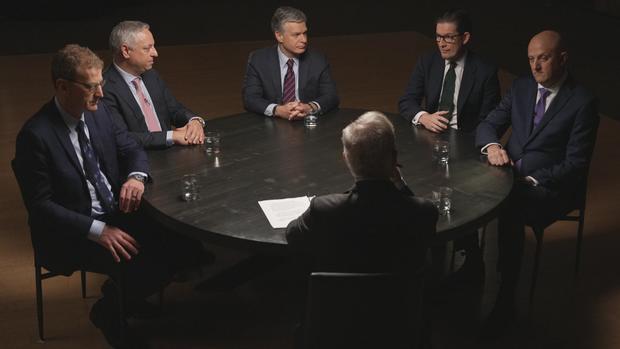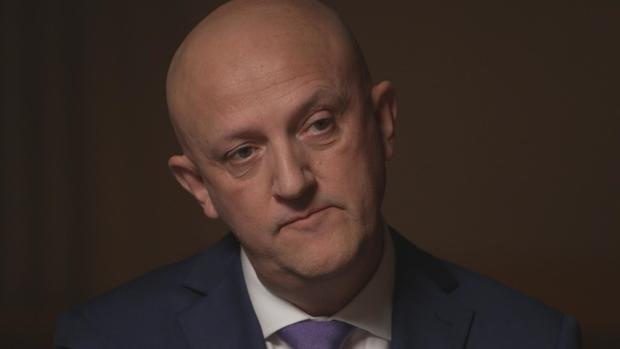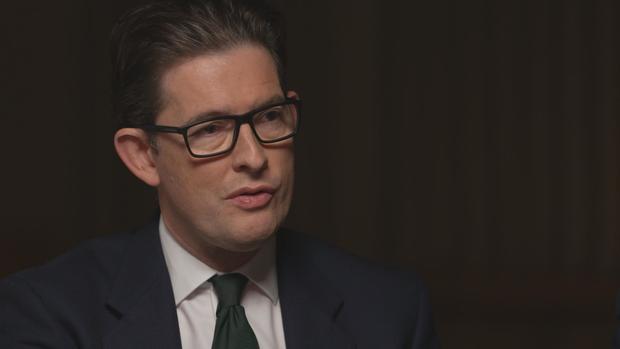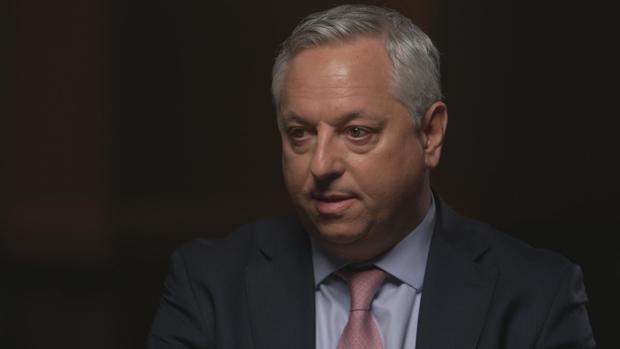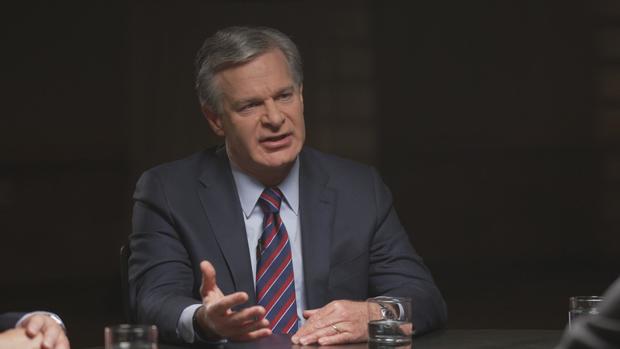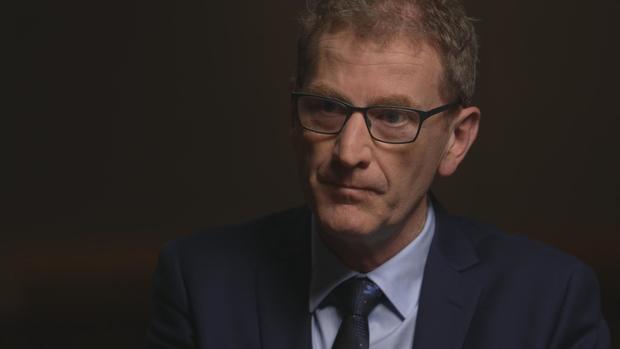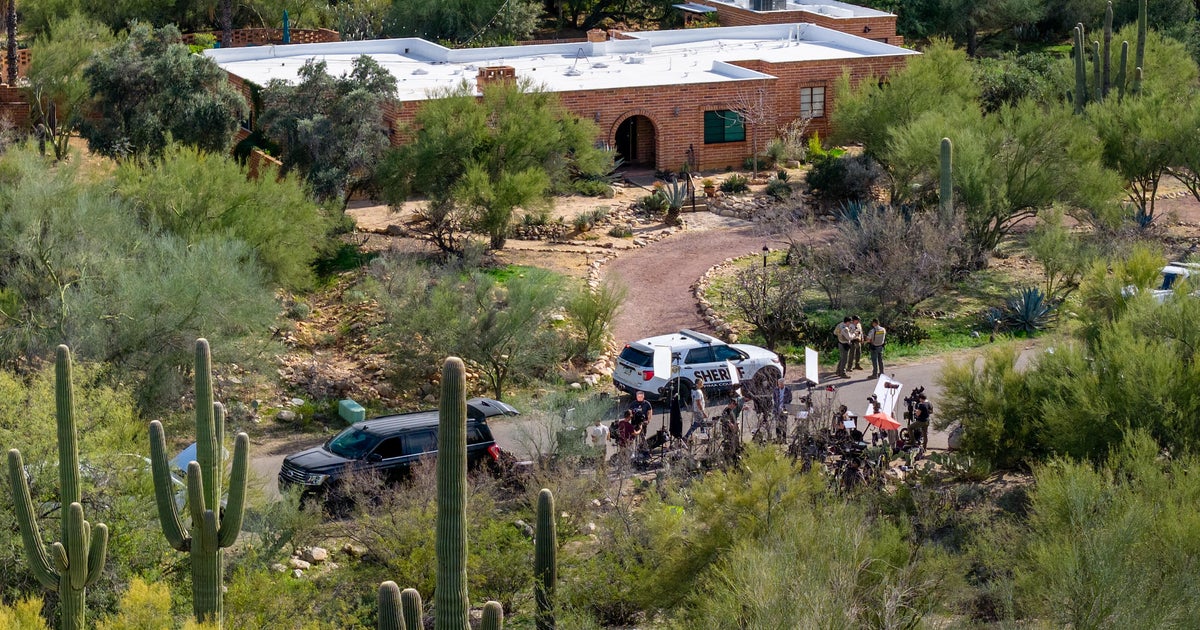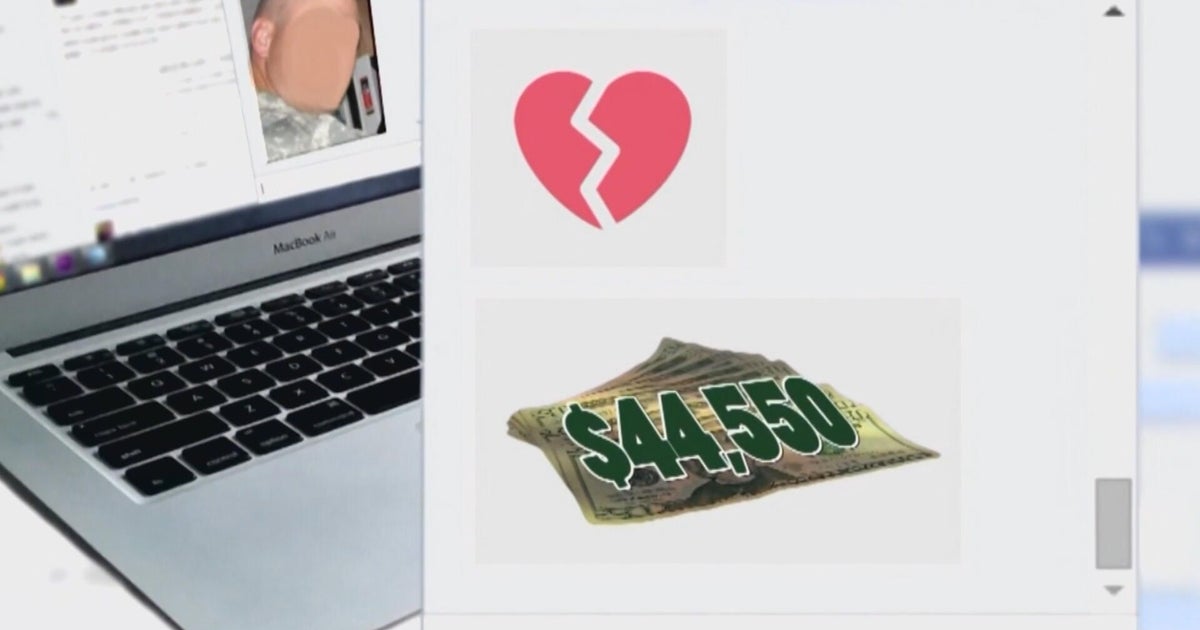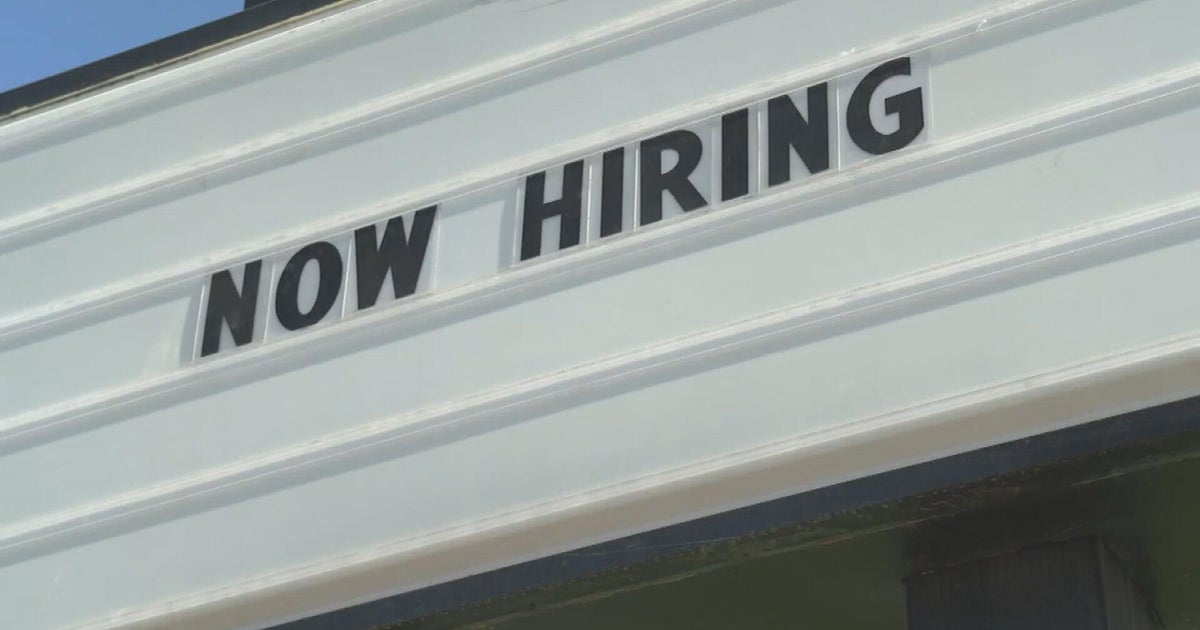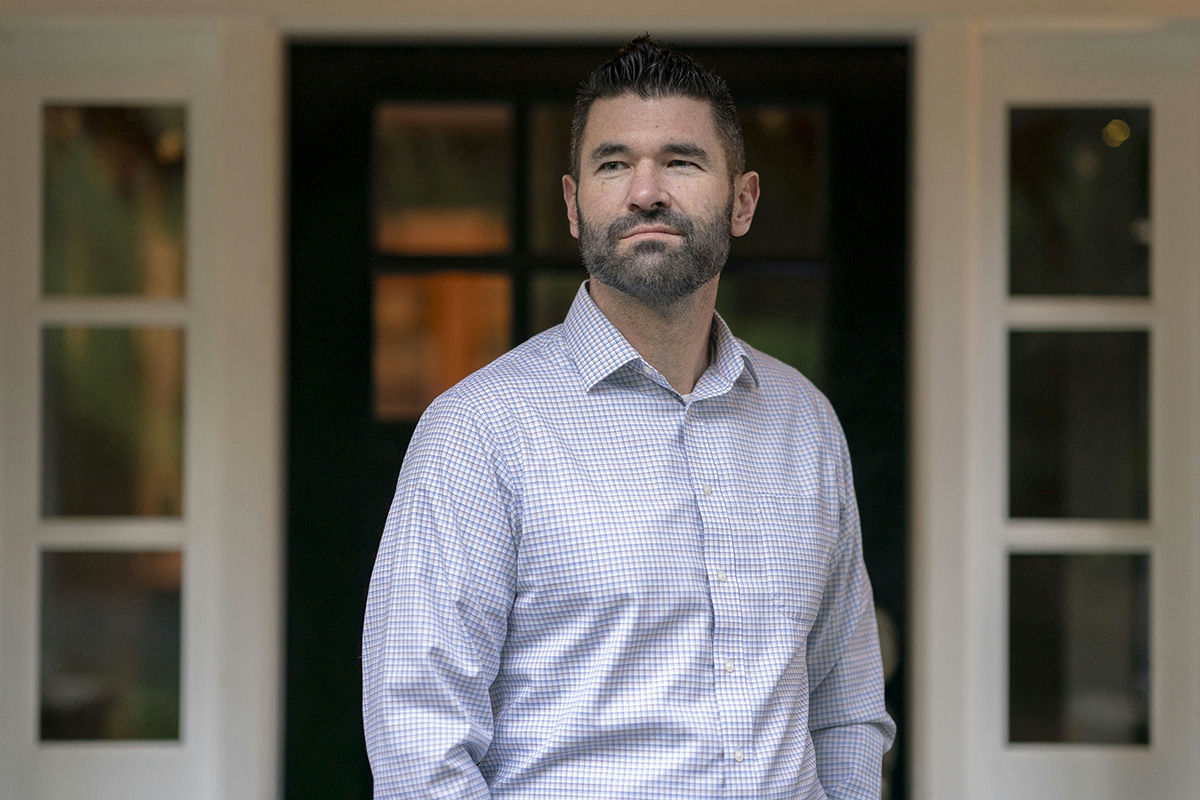China stealing technology secrets -- from AI to computing and biology, "Five Eyes" intelligence leaders warn
War in the Middle East has the FBI tracking more potential threats of terrorism in the United States. Tonight, the bureau's director, Christopher Wray, tells us his main concern is not an organized attack but lone actors inspired by the violence. We met Wray, Wednesday, for an unprecedented interview that included him and the intelligence directors of our english-speaking allies. Together, they know more about the threats in the world than perhaps anyone. They're known as the Five Eyes and they have never appeared in an interview together. They're doing it now because they're alarmed by China which they say is the greatest espionage threat democracy has ever faced. But given the war, we'll begin with FBI Director Wray on the threat of terror at home.
Christopher Wray: We have seen an increase in reported threats but vigilance is heightened right now just because of the fluid and volatile environment in the Middle East and the ways in which that could spin out in the U.S.
By the time we had gathered for our interview, it had already 'spun out in the United States.' In Illinois, a 6-year-old Palestinian-American boy was stabbed to death by a man enraged by the attack on Israel.
Scott Pelley: How do you stop that kind of thing?
Christopher Wray: The key that we found in stopping it more and more is trying to have the right eyes and ears out in the community. And so, what we need to have are people in the community. When they see something starting to go awry, calling law enforcement. And the attacks that we've been able to prevent over the years have almost always included somebody who's made that phone call. And the attacks that haven't been prevented have almost always had somebody who had that information, but for one reason or another, didn't make that phone call.
About 30 Americans were killed in the Hamas Attack. Two American hostages were released Friday, which left 10 still missing. Sources tell us it's unclear how many of them may be hostages. Israel leads the hostage effort. The FBI is prepared to help.
Christopher Wray: We're gonna work closely with our partners, our Israeli partners, our U.S. embassy partners, the whole U.S. government to do whatever we can to ensure that those hostages come out safe. But make no mistake, this is a dangerous time.
We met Chris Wray with his fellow intelligence chiefs of the so-called "Five Eyes" -- from the left, Mike Burgess of Australia, David Vigneault of Canada, Ken McCallum of the United Kingdom and, at far right, Andrew Hampton of New Zealand. The "Five Eyes" alliance was formed after World War II to gather intelligence. But this was their first public appearance ever and they did it in Palo Alto, California, Silicon Valley, to make this point— the technology secrets that are about to change the world, in artificial intelligence, biology and computing are falling into the wrong hands — stolen — in a global espionage campaign by China.
Christopher Wray: The People's Republic of China represents the defining threat of this generation this era. There is no country that presents a broader, more comprehensive threat to our ideas, our-- our innovation, our economic security, and ultimately our national security. We have seen efforts by the Chinese government, directly or indirectly, trying to steal intellectual property, trade secrets, personal data-- all across the country. We're talking everything from Fortune 100 companies, all to smaller startups. We're talking about agriculture, biotech, health care, robotics, aviation, academic research. We probably have somewhere in the order of 2,000 active investigations that are just related to the Chinese government's effort to steal information.
Scott Pelley: But all countries spy.
Mike Burgess of Australia.
Mike Burgess: Yes, absolutely, all countries spy. Our countries spy. All governments have a need to be covertly informed. All countries seek strategic advantage. But the behavior we're talking about here goes well beyond traditional espionage. This scale of the theft is unprecedented in human history. And that's why we're calling it out.
They were 'calling it out' this past week in private meetings with 15 top Silicon Valley executives and Stanford University.
Ken McCallum: This is not just about government secrets or military secrets. It's not even just about critical infrastructure. It's about academic research in our universities. It's about promising startup companies. People, in short, who probably don't think national security is about them.
Ken McCallum is director general of MI5, the U.K.'s FBI.
Ken McCallum: So we see the theft happening in a range of ways. One is that we see employees within those companies being manipulated. Often, in the first instance, they are not aware of what is happening. We have seen, for example, the use of professional networking sites to reach out in sort of masked, disguised ways to people in the U.K., either who have security clearance or who are working in interesting areas of technology. We've now seen over 20,000 examples of that kind of disguised approach to people in the U.K. who have information that the Chinese State wishes to get its hands on.
Christopher Wray: You have the biggest hacking program in the world by far, bigger than ever other major nation combined. Stolen more of our personal and corporate data than every nation, big or small, combined.
Scott Pelley: Are you saying that it is a threat to the way of life of democracies?
Christopher Wray: It is-- a threat to our way of life in a number of ways. The first is that when people talk about stealing innovation or intellectual property, that's not just a Wall Street problem. That's a Main Street problem. That means American jobs, American families, American livelihoods, and the same thing for every one of our five countries, directly impacted by that theft. It's not some abstract concept. It has flesh and blood, kitchen-table consequences.
Here's one example. When China stole the technology secrets of one American wind turbine company, the company lost its competitive advantage, sales collapsed and it laid off nearly 700 workers.
Scott Pelley: When you encounter a company that isn't sure that it wants to cooperate with you, what do you tell them?
Ken McCallum: I would say that if you are operating at the cutting edge of tech in this decade, you may not be interested in geopolitics, but geopolitics is interested in you. And you would be reckless, not just with my secrets but with your own company's viability, with your shareholders' capital if you didn't think about what that means.
Christopher Wray: We all came into these meetings with the mindset of we want to figure out how we can better help protect you, your innovation, your intellectual property. They all came into the conversations with ideas of ways they can help us help them.
The intelligence chiefs told us Chinese companies are overseen by the Communist Party and, for many, espionage is a sideline on behalf of the PRC, the People's Republic of China.
Scott Pelley: Is the Chinese government building industrial sites in your countries that are actually covers for espionage operations?
David Vigneault of Canada.
David Vigneault: We have seen in the past, acquisition of land, acquisition of different companies where you, when you start to dig a little bit further, you realize that it's, there is another intent. And we have seen and blocked attempt by the PRC to acquire locations near sensitive, strategic assets of the country where we knew that the ultimate purpose was for spying operations.
Scott Pelley: And Director Wray, have you seen that in the United States?
Christopher Wray: We've seen a variety of efforts by Chinese businesses, in some cases state-owned enterprises, in some cases ostensibly private companies-- attempting to acquire businesses, land, infrastructure, what have you, in the United States in a way that presents national security concerns.
Including investigations, recently of Chinese companies purchasing land and building plants near U.S. military bases.
Christopher Wray: We welcome business with China, visitors from China, academic exchange. What we don't welcome is cheating, and theft, and repression.
Political repression is another target of the Five Eyes. They told us they're fighting China's meddling in elections and violence aimed at silencing Chinese dissidents living in their countries.
Christopher Wray: We had a case that we-- that was indicted not that long ago where there was-- an actual congressional candidate who was very critical of the Chinese government. the efforts were initially to try to see if they could come up with dirt on the candidate to derail his candidacy. And then to try to concoct dirt, just fiction-- about the candidate. And then, if that didn't work, there was even discussion about the candidate befalling a horrible accident.
That candidate was Yan Xiong, a Chinese American who served in the U.S. military and protested China's crackdown on Hong Kong. Last year he lost the Democratic nomination in a New York congressional race. In court filings, prosecutors say a Chinese agent hired an American private investigator to discredit Yan, and left the investigator a voicemail saying, "…violence would be fine…beat him until he cannot run for election."
Scott Pelley: Is that the threat of violence in the United States that we face from the Chinese government?
Christopher Wray: We have seen over and over again efforts to really stop at almost nothing to intimidate people who would have the audacity here in the United States where we have freedom of speech to express criticism of the regime.
Scott Pelley: While we have the allies around the same table, let me ask this question. The catastrophe in the Middle East, Russia's invasion of Ukraine, Chinese espionage on a scale that's never been seen before, are all of you stretched too thin?
Andrew Hampton: I think one of the strengths of the Five Eyes partnership is that we share some really fundamental values as countries and as agencies.
Andrew Hampton of New Zealand.
Andrew Hampton: Part of how you respond to that is by working together as like-minded countries. Part of how you respond to it is partnering across our own countries, as we've talked about, with community groups, with the private sector they're our biggest strengths.
For its part, China said this about the Five Eyes point of view: "We firmly oppose the groundless allegations and smears toward China..."
MI5's Ken McCallum told us never in his nearly 30 years in intelligence has the threat been so complex-- Iran, Russia, terrorism, but it was China that was the first to get the Five Eyes around this table—and before the eyes of the public.
Christopher Wray: I mean, essentially what you have with the Chinese government is the autocracy and oppressive regime of-- you know, East Germany combined with the cutting edge technology of Silicon Valley. And the combination represents a daunting first of its kind threat for the United States and for our allies.
Scott Pelley: You seem to be saying that the Chinese government is running a criminal enterprise.
Christopher Wray: Well, I would say the Chinese government, if they want to be a great nation, it's time for them to start acting like one. And that includes abiding by its own commitments not to steal innovation. That includes not exporting repression to other countries. That includes working with all of our countries and all the other countries that we work with all the time who have common threats, like cybercrime, fentanyl trafficking, money laundering. It means not working with criminals but rather working to uphold the rule of law.
Produced by Aaron Weisz. Associate producer, Ian Flickinger. Broadcast associate, Michelle Karim. Edited by April Wilson.

